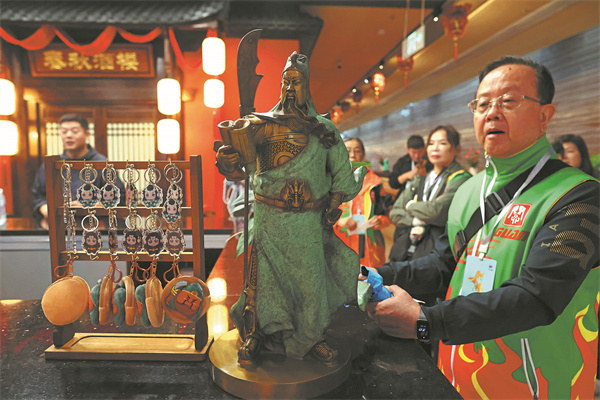

A dynamic symbol
Wang Shi, honorary chairman of the Chinese Culture Promotion Society, says scholars often focus on the "large traditions" — Confucianism, Buddhism, Taoism — while overlooking the "grassroots traditions" of local worship.
How did a third-century general become a deity for so many people? Wang asks. The answer lies in a distinctly Chinese alchemy of history and folk belief, he adds.
"Promoting traditional culture must not come at the expense of folk belief," he says. Guan Yu's elevation, he explains, follows an ancient principle: those who serve the people deserve veneration. "Gods like Guangong were created by people, to protect, guide and educate themselves. Only a god can carry so many human hopes."
That symbolic breadth lets Guangong bridge social worlds. Wang Juan, a professor of Chinese literature at Peking University, sees him as a vessel of timeless virtues: benevolence, righteousness, wisdom, and courage.
"Benevolence is love; righteousness means trust; wisdom is culture; courage is facing hardship without flinching," she says. "These values speak as strongly today as they did then."